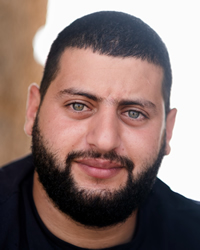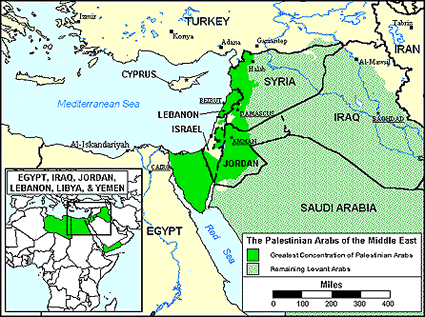In the first Arab-Israeli War of 1947-1948, thousands of Palestinian Arabs fled their homes in the area now known are Israel. Atrocities were committed by both sides in the war. Since that time, Arabs who departed Israel have not been allowed to return to their homeland. During the 1967 Arab-Israeli War, thousands more left east Jerusalem, Gaza and the West Bank. Some of the Palestinians came to live in Iraq hoping to find a peaceful place to work and raise their families.
Unfortunately, since 2003 a civil war has been raging in Iraq. Over a million people have died and millions more wounded or displaced. When coalition forces under the United States overthrew Saddam Hussein, there was a new power vacuum in the country. The vast majority of the coalition forces have left Iraq. The Sunni and Shia factions to fight one another. The Sunnis are backed by Saudi Arabia and other Sunni led Arab nations while the Shia are supported by Iran. The Kurds, a non-Arab ethnic group, have taken over northeastern Iraq. The Kurds are opposed by the Turkish government. Since 2017 the violence has diminished in Iraq but bombings, artillery duels, and gun battles are still going on.
When Saddam Hussein was in power, the Sunni Palestinians were doing relatively well. They were not allowed to become citizens but were given most of the rights of Iraqis. Educated Palestinians worked in schools, tourism, the oil industry, and finance. Other less educated Palestinians worked in construction, factories, agriculture, animal husbandry, and restaurants. With the start of the war, all that changed. Sunni Palestinians lost their jobs and homes when the majority Shia took over large parts of the country. Many Palestinians were ordered to leave or be arrested. Some Palestinians were able to flee Iraq for the West or Sunni dominated Arab nations. Some Palestinians unable to leave, are doing their best to survive the turmoil and unstable situation in Iraq.
Almost all Palestinian Arabs in Iraq are Muslims, mostly Sunni. Islam is a religion of works that is based on five basic "pillars" which are (1) A Muslim must affirm that "there is no god but Allah, and Mohammed is his prophet;" (2) He must pray five times a day while facing Mecca; (3) He must give generously; (4) He must fast during Ramadan, the ninth month of the Muslim year; and (5) He must try to make at least one pilgrimage to Mecca in his lifetime.
Muslims are also prohibited from drinking alcohol, eating pork, gambling, stealing, using deceit, slandering, and making idols.
The two main holidays for Sunni Muslims are Eid al Fitr, the breaking of the monthly fast and Eid al Adha, the celebration of Abraham's willingness to sacrifice his son to Allah.
The most important pressing physical need for all people living in Iraq is peace. The Palestinians living in Iraq may not ever have heard a clear presentation of the gospel. Isa or Jesus is much more than the human prophet that He is deemed to be in Islam. Medical teams of Christians can help the Palestinians in camps and show them the love of Christ. Christian teachers can set up schools for refugee Palestinian children. Refugee camps often do not provide for their inhabitants' basic needs. Believers who meet those needs would open the door for the gospel.
Ask the Lord to raise up a Disciple Making Movement among the Palestinians in Iraq.
Pray the Spirit produces a hunger for spiritual things among Palestinians in Iraq. Pray that Palestinians would tune into Christian TV and radio programs.
Pray that Palestinian parents in Iraq would be able to provide adequately for their children.
Scripture Prayers for the Arab, Palestinian in Iraq.
| Profile Source: Joshua Project |













